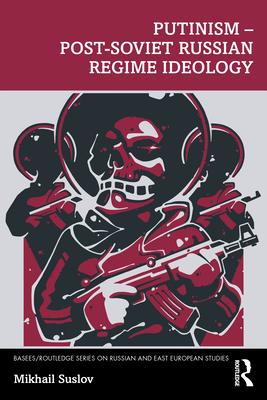A key question for the contemporary world: What is Putin's ideology? This book analyses this ideology, which it terms "Putinism". It examines a range of factors that feed into the ideology - conservative thought in Russia from the nineteenth century onwards, Russian and Soviet history and their memorialisation, Russian Orthodox religion and its political connections, a focus on traditional values, and Russia's sense of itself as a unique civilisation, different from the West and due a special, respected place in the world. The book highlights that although the resulting ideology lacks coherence and universalism comparable to that of Soviet-era Marxism-Leninism, it is nevertheless effective in aligning the population to the regime and is flexible and applicable in different circumstances. And that therefore it is not attached to Putin as a person, is likely to outlive him, and is potentially appealing elsewhere in the world outside Russia, especially to countries that feel belittled by the West and let down by the West's failure to resolve problems of global injustice and inequality.

A key question for the contemporary world: What is Putin's ideology? This book analyses this ideology, which it terms "Putinism". It examines a range of factors that feed into the ideology - conservative thought in Russia from the nineteenth century onwards, Russian and Soviet history and their memorialisation, Russian Orthodox religion and its political connections, a focus on traditional values, and Russia's sense of itself as a unique civilisation, different from the West and due a special, respected place in the world. The book highlights that although the resulting ideology lacks coherence and universalism comparable to that of Soviet-era Marxism-Leninism, it is nevertheless effective in aligning the population to the regime and is flexible and applicable in different circumstances. And that therefore it is not attached to Putin as a person, is likely to outlive him, and is potentially appealing elsewhere in the world outside Russia, especially to countries that feel belittled by the West and let down by the West's failure to resolve problems of global injustice and inequality.